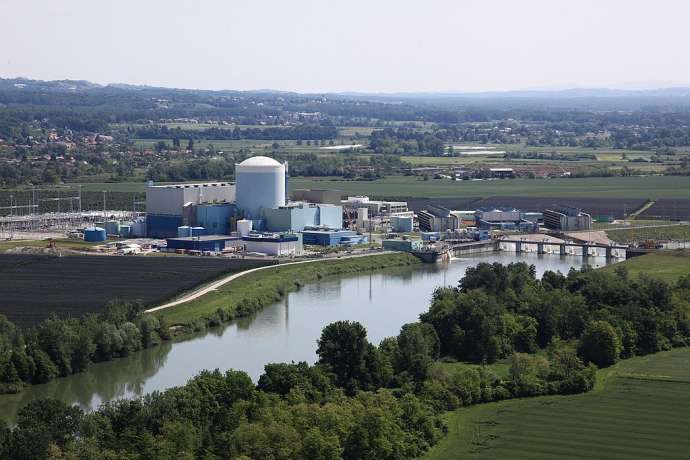STA, 12 October - Ten EU countries, Slovenia included, have asked the EU Commission to recognise nuclear power as a low-carbon energy source that should be part of the Union's transition towards climate neutrality and help reduce the bloc's energy dependence.
The ten countries say nuclear is a "key affordable, stable and independent energy source" that could protect EU consumers from being "exposed to the volatility of prices," Euronews has reported.
"While renewable energy sources play a key role for our energy transition, they cannot produce enough low-carbon electricity to meet our needs, at a sufficient and a constant level," the letter says.
The signatories also highlight nuclear as a way of improving the bloc's energy independence. "The rise of energy prices have also shown how important is it to reduce our energy dependence on third countries as fast as possible," reads the letter.
Commenting on the letter, Slovenian Infrastructure Minister Jernej Vrtovec wrote on Twitter that nuclear energy was "crucial for energy independence. More and more countries now realise that."
Slovenia's sole nuclear power station in Krško accounted for 45% of all energy produced in Slovenia last year. Plans have already been set in motion to replace the ageing reactor with a new unit.
Commenting on the matter during a visit with Slovenian automotive suppliers in Idrija, Prime Minister Janez Janša said it would be impossible to provide sufficient supply of the population or achieve carbon-free society by 2050 without increasing production at nuclear power plants in Europe.
The countries that will not opt for nuclear energy for one reason or another will have to abandon their reservations about those who will or else the formula will not work out, said Janša.
He noted that nuclear energy is a political issue and one involving prejudice because of disasters such as the one in Chernobyl in 1986. "However, it's necessary to realise that since Chernobyl the technology has become more advanced and safety mechanisms have become much better."
Janša agrees that nuclear plants are not fully sustainable due to the problems of fuel and waste, but he said "all that is solvable".
"Either we opt for nuclear energy or we burn candles, a consideration will have to be made what poses a greater risk to the civilisation," said Janša.







